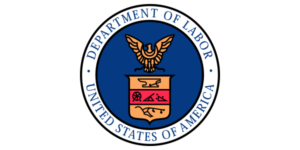 The U.S. Department of Labor Wage and Hour Division (“WHD”) recently published guidance concerning the enforcement of the Providing Urgent Maternal Protections for Nursing Mothers Act’s (“PUMP Act”) “pump at work” provisions enacted under the Fair Labor Standards Act (“FLSA”). The WHD published this new guidance in Field Assistance Bulletin No. 2023-02. While directed at agency officials, this bulletin provides valuable insight into how the Department has interpreted and plans to enforce the rights afforded to nursing employees under the PUMP Act.
The U.S. Department of Labor Wage and Hour Division (“WHD”) recently published guidance concerning the enforcement of the Providing Urgent Maternal Protections for Nursing Mothers Act’s (“PUMP Act”) “pump at work” provisions enacted under the Fair Labor Standards Act (“FLSA”). The WHD published this new guidance in Field Assistance Bulletin No. 2023-02. While directed at agency officials, this bulletin provides valuable insight into how the Department has interpreted and plans to enforce the rights afforded to nursing employees under the PUMP Act.
The WHD bulletin is designed to clarify the rights afforded under the Act and provide general guidance to enforcement officials on their application and compliance requirements. Some notable highlights of the bulletin include:
- Frequency and Duration of Breaks – Employees are entitled to breaks whenever they need to pump, with the length and frequency of the breaks varying based on the employee’s needs. Employers can agree to a specified break schedule with an employee based on their needs but may not force an employee to comply with a fixed pumping schedule;
- Compensation – Employers are not required to pay an employee for pump breaks unless otherwise specified by federal, state, or local laws. Employers must pay an employee when pumping during their paid breaks or when they are not fully relieved from work duty.
- Privacy Requirements – Employees have a right to a place to pump at work that is: (1) shielded from view; (2) Free from intrusion; (3) available at the times needed by the employee; and (4) not a bathroom. The WHD advises employers to clearly display when a designated space is in use or install a lock on the door;
- Pumping Space Requirements – A pumping location must include a place for the nursing employee to sit and a flat surface other than the floor on which to place the pump. Employees must also have access to a cool or refrigerated place to store milk while at work safely. While access to electricity is encouraged so that employees may use electric pumps, it is not an explicit requirement;
- Small Employer Exemption – Employers with fewer than 50 employees may be exempt from PUMP Act requirements if they can prove that compliance would cause an undue hardship on their business operations;
- Anti-Retaliation Provisions – Like most federal employment laws, the FLSA includes an anti-retaliation provision. This provision strictly prohibits employers from retaliating against an employee for engaging in a protected activity. Employers cannot hold time taken for pump breaks against employees or require employees to work additional hours to make up for time spent on pump breaks; and
- Posting Requirements – Employers must post the WHD’s updated FLSA poster informing employees of their rights under the PUMP Act.
The aspects of the PUMP Act highlighted by the bulletin illustrate the Department’s enforcement objectives and priorities. It’s clear that the WHD wishes to protect the pumping rights of nursing employees while also ensuring that pumping areas comply


